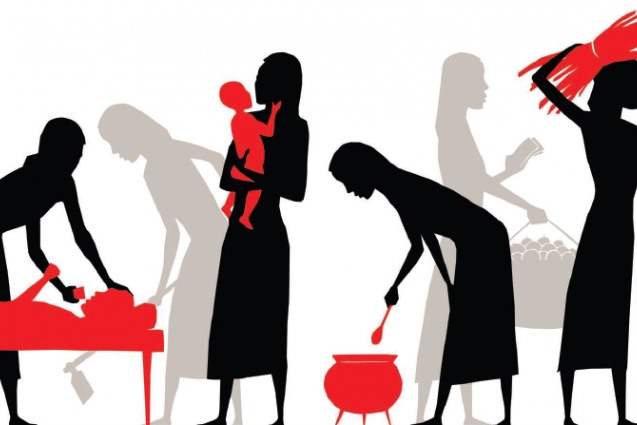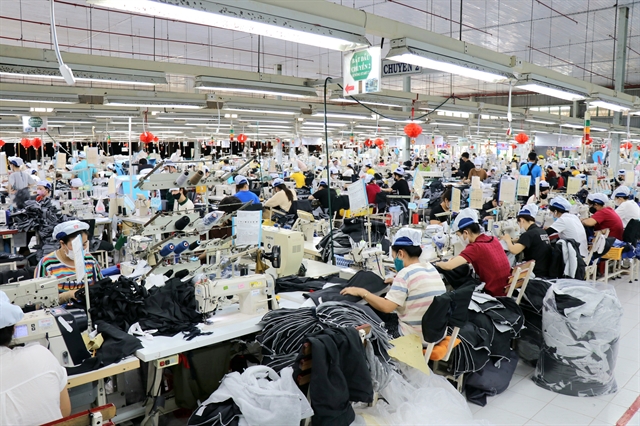 Society
Society

Vietnamese women spend over five hours a doing so-called “no-name” work such as cooking, cleaning and childcare - about 2-2.5 hours more than men.
 |
| “No-name” work is time consuming, repetitive and often intensive, but is not recognised, nor paid, nor respected by family members.—Photo actionaid. org |
HÀ NỘI – Vietnamese women spend over five hours doing so-called “no-name” work such as cooking, cleaning and childcare - about 2-2.5 hours more than men.
This is one of the findings of the Unpaid Care Work Research that analysed the roles and contribution of women through unpaid care work (UCW), which was presented yesterday in Hà Nội by the Department of Gender Equality under the Ministry of Labour, Invalids and Social Affairs, in co-operation with ActionAid Vietnam.
“No-name” work is time consuming, repetitive and often intensive, but is not recognised, nor paid, nor respected by family members, the community and women themselves, according to the initial research findings.
Hoàng Phương Thảo, Country Director of ActionAid Vietnam, said that gender inequality was one of the root causes of poverty and injustice.
As many as 67 per cent of people living in poverty worldwide are women. Therefore, unless UCW is shared and acknowledged, more and more women will be poor, not having time for paid work or education, she said.
“It will not only impact women but the next generation also. Inequality can only be resolved if the solutions emerge from the family,” she said.
The research is part of a project entitled “Women’s Rights: Preventing Gender-based Violence and Promoting Women’s Participation in Politics”. It is sponsored by Irish Aid and ActionAid Vietnam and implemented in different areas of Việt Nam. It was conducted in nine cities and provinces in Việt Nam from January to June this year.
According to a survey by the Swiss Government, if UCW in households is properly calculated, it would account for up to 40 per cent of Switzerland’s Gross Domestic Product (GDP). Research in the US state of Massachusetts estimated that if taken into account, UCW would increase the state’s GDP from US$352 billion to $504 billion, accounting for nearly 30 per cent of the value of goods and services produced in the State.
With five hours of work per day, Việt Nam’s 22 million work-age women spend 110 million hours on UCW, equal to over 13 million working days.
At an average of VNĐ100,000-150,000 ($4.4-6.6) per day, the value of the unrecorded UCW by women is more than 20 per cent of Việt Nam’s GDP last year, which was about $41 billion.
The research recommends that the Government consider UCW’s value as an indicator for GDP calculation.
Phạm Ngọc Tiến, director of the Gender Equality Department, said, “If Vietnamese women’s contribution is well acknowledged, there will be significant changes in our society regarding equality between men and women, which will inevitably lead to the reallocation and sharing of UCW in a more appropriate way.”
This would be a practical way to improve the economic situation and quality of life for women, he said.
It is crucially important for the Government to consider how to incorporate UCW in GDP calculations and socio-economic policy development, according to the research.– VNS




